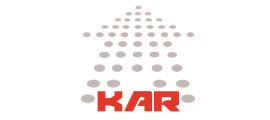Can small businesses keep their best talent? Yes, but money has nothing to do with it!

There has been little good news for small businesses in recent days. Between inflation, rising energy costs and an uncertain economic future, CEOs and executives have a heavy workload. As if that weren't enough, there's an equally urgent and everlasting challenge they face: the war for talent. Retaining the best talent has become a challenge for all companies.
Businesses of all sizes face a certain level of competition for talent, especially as work-from-home models have expanded the global talent pool and led to prospective employees gaining a position of control. Established businesses can afford to lose talent eager to come on board a startup racing to go public, or they can struggle for retention when employees feel like they're just a cog in a big wheel.
At the same time, small and medium-sized enterprises (SMBs) are struggling to compete with market giants, which may offer stability, Silicon Valley salaries for remote work or attractive benefits. Furthermore, SMEs are often so focused on survival that it can be difficult for them to foster innovation and growth, consequently leaving new talent to seek out more cutting-edge businesses. And when the stars align and an SMB manages to recruit but fail to retain superstar talent, the blow is much harder than a larger company that has more liquidity and larger, more segmented teams to cope with the loss.
However, SMEs are doing themselves a disservice if they think the war for talent is all about the money. Offering competitive pay is key, but it's not the primary motivation for leaving a job. Most often, according to the World Economic Forum, this decision is related to lack of career development and advancement . So instead of focusing on salaries they can't guarantee, every SMB has the opportunity to take a close look at their organization and discover ways they can do more with limited resource availability to attract and retain the best talent.
Before we look at how to attract and retain the best talent, let's look at the top 9 reasons why the best talent jumps ship.
The main reasons why an employee leaves the company
They are not involved
Employees who feel engaged in their workplace tend to stay, but the reverse is also true: workers who feel disconnected from development opportunities, management or company values are more likely to leave.
And uninvolved workers make up a sizable portion of the workforce: According to a 2021 Gallup poll, they make up 15% of U.S. workers.
“ They may be generally satisfied, but are not cognitively and emotionally attached to their role and workplace; they usually show up for work and do the minimum required, but will quickly leave their company for a slightly better offer ,” according to Gallup.
Knowing if an employee isn't feeling engaged requires paying attention to subtle cues, which can be hard to spot. Experts advise managers to observe the workers and ask themselves: do they participate in the initiatives promoted by the company? Do they call in sick more than usual? Do they do the bare minimum to get by?
“ You should evaluate factors on an individual basis rather than comparing colleagues to each other or judging engagement based on productivity or quality of work ,” says Sanja Licina , head of employee experience at QuestionPro . If someone has always been outgoing, but is suddenly more reserved, or has always participated in team building or activities outside of work and suddenly doesn't, these are definitely signs. But if someone is an introvert, it can be more difficult to figure them out, unless you've built a personal relationship with them ."
Problems with management
It is a common expression: “ Employees don't quit their jobs, they quit managers ”.
Wendy Duarte Duckrey , global head of technology recruiting at JPMorgan Chase , confirms the truth of this statement.
“ When you lose your best talent, the number one cause to look at is management ,” Duckrey says. “ Managing teams as a whole is difficult. You have to manage each individual and invest time to discover what each member of a team needs, both on and off the job, to do the job to the best of their ability.”
Do employees feel part of a team? Do they feel that their suggestions, concerns and challenges are recognized and, when possible, acted upon? Do they feel appreciated?
“ Technological talent expects transparent and responsible management. Top talent wants to work where they feel their work has a real impact. If they don't see major results, they're more likely to walk away ,” says KC George , partner at Bain & Co. “ Managers should be visible and interact directly with employees, act with speed and decisiveness and hold themselves accountable for real results ”.
While it may seem inconsequential, simply listening to employee concerns and doing what you can to address them — or at least explain why they can't be addressed right now — can go a long way in retaining the best and brightest talent, say HR professionals.
Tom Gimbel , CEO and founder of LaSalle Network , a recruiting firm, recalls an IT worker who quit because his superiors decided not to update security protocols he knew were necessary. " He didn't want to be saddled with blame that the company hadn't invested in what he recommended ."
Unprepared managers
It is not uncommon for a manager to be a highly talented technician, but ill-prepared to deal with management's demands and nuances.
The skills that make an employee a great software developer, for example, are different from those required for management. Managers must be prepared to lead and manage their teams.
“This is a chronic problem where people are being promoted to management roles, but there is not enough investment in their training to perform the role well ,” says George. “ Teams that depend on these ill-prepared managers suffer from a lack of people development and seek alternative paths to better career development, within the company or often externally .”
There is no room to grow
One of the main reasons top employees leave is because they feel their career advancement isn't going as planned.
“ It doesn't matter if they like what they're working on, who they're working with, and whether they're being paid fairly or more than fairly ,” says David Foote , analyst and head of research at Foote Partners . “ They must feel that there is something for them personally, otherwise they will be tempted to look for work elsewhere or will be sensitive to offers from recruiters ”.
The best collaborators won't always want to manage people. So you need to build a non-management career path for them, or they'll find another organization that offers it to them.
Making training and career advancement opportunities available, even if they lead employees to grow and leave the company, is a must, because an employee could return to the company, after leaving, or recommend the company to other talents, according to Duckrey.
“ Make sure employees are aware of the opportunities available to grow and broaden their knowledge ,” he says. “ Find out if they have the resources to improve and change their roles, to take on ever-changing responsibilities, to lead new projects, to experiment ”.
Cutting edge updates are missing
Most employees want to work on emerging technologies and explore new technology "toys". They also want to keep their skills up to date in a rapidly changing profession, so they look for employers who also appreciate the importance of taking advantage of cutting-edge technology.
“ They want to know that the company is always up to date, because they know that if it's not, it will fall behind ,” Gimbel says.
Top techs often see cutting-edge job opportunities as a key reason to take a job. Indeed, working with new technologies are the main reasons professionals want to work with a particular company, along with factors such as salary and quality management.
“ If new technologies or upgrades aren't in your budget, consider offering employees external training on cutting-edge systems, even if you can't use them right away,” says Rona Borre , CEO and founder of the Instant Alliance . “ This will emphasize that you appreciate their training and expertise ”.
Feedback is not offered on a regular basis
If managers don't offer constructive feedback on a regular basis or discuss career goals at least once a year with employees, the company risks losing touch with its talent and increasing the chances that it will leave.
“ Lack of verbal communication within the organization is the leading cause of employee resignations ,” says Kira Meinzer , chief people officer at Envoy Global . “ IT leaders should regularly have employees discuss their current role and any concerns they may have ”.
“ Having open discussions about where the best employees see their future is key ,” he adds. “ Another simple but powerful question managers need to ask is, 'What keeps you here now and what will keep you here in the future?' ”.
Annual performance reviews are really the bare minimum. Experts agree it's best to have more frequent comparisons.
“ Feedback is extremely important for millennials, generations X and Y ,” says George. “ Not only evaluation at regular intervals, but also live feedback in real time is important. The best talents want to stay on top and want to continuously improve. This became even more critical during the pandemic, where managers could not passively supervise teams. A more proactive effort was required and someone overlooked this request ”.
Regular feedback allows you to catch signs of dissatisfaction and non-involvement faster.
Workplace rules are too strict
Flexible scheduling and remote working were common in IT even before Covid forced the widespread adoption of remote working. CIOs (Chief Information Officers) need to make them permanent options if they want to keep their employees.
According to Dice's 2021 Technologist Sentiment Report , 59% of IT employees prefer remote or hybrid work , compared to 17% who prefer full-time in an office.
But CIOs need to offer more than remote work, as employees also want a certain level of freedom. “Some are looking for flexibility to live wherever they want, others want at least flexible part-time hours in the office,” adds George.
The corporate mission is confusing
“ Having a clear mission and vision is now the most important factor for talent, especially Millennials ,” says George.
Employees want to work for companies they believe in. As Robert Half reports, 71% of employees said they would leave a company whose values don't align with their own.
Borre says having a strong set of company values, a mission statement, and specific goals (for the company, departments, teams, and individuals) can help employees see how their individual contributions fit together more great. “ Most people want to work in a place with a strong corporate culture, one that clearly defines its mission and has a set of values that every employee, from the CEO down, has accepted, believes in, and follows.”
“ Helping employees feel valued isn't hard ,” Borre adds, “ but it does involve investing time in listening, gathering feedback, and incorporating that feedback into policies and mission statements .”
I'm burnt out
Among the factors leading to resignation is burnout.
In its 2021 Work Trend Index , Microsoft reports that 54% of employees feel overworked and 39% feel exhausted.
“ Paying attention to employees' challenges in managing work and personal life is important to retaining the best talent ,” says Duckrey. “The little things that emphasize the importance of work-life balance go a long way in making employees feel that they are not just a throwaway cog, but a valuable asset to the company and their families.”
How to keep the best talent in the company?
Whatever the reason for the decision, it costs a lot of money to the organization which sees itself deprived of a resource, which has to manage the work until a new employee is hired and which needs to commit resources to finding a new profile and provide for his training.
It often happens that the most efficient employees have more initiative and know how to work better. Obviously, with these characteristics, they tend to be among the first to seek new pastures in which to grow professionally and to leave behind a hole that is difficult to fill. Among other things, the most qualified resources are always highly sought after. Not to mention that hiring someone and training them is an extremely costly process. For this reason - from the point of view of an organization - employees increase in value as they become more experienced by spending time in the company.
With these premises it is not difficult to understand why it is so important to know how to retain the employees who are most dear to us is fundamental for our organization .
Most experts suggest a mix of approaches, we, also on the basis of what we have seen on the reasons why employees leave the company, try to understand what strategies to put in place to be able to keep them.
Give your talents tools to inspire innovation.
The brightest innovative minds want to work on the latest versions of technology tools: 91% of Gen Z hires want their employer to have the most sophisticated technology. While the initial investment can be expensive for smaller teams, it's a smart investment for SMBs where employees fill multiple roles. Your talents will have more opportunities to explore emerging technology, push their minds in new directions, and ultimately challenge themselves to make the most of this investment for the good of the company and their career. It's a win-win situation for everyone.
Be honest about what you can build or what you could build from.
To build or not to build is a complex issue, which the best-prepared owners face with total objectivity. Look without prejudice at your weaknesses or technical limitations that hinder you on a daily basis and ask yourself where you can exploit tools already at your disposal such as cloud computing, artificial intelligence (AI) and machine learning (ML), etc. If you can buy a tool or service for 25% more, but save twice (50%) in time, then it's a great buy. Building your own is likely to take longer and be more expensive than you think. In addition to taking some of the pressure off technical debt, you're offloading top talent to push your boundaries in new ways.
Don't underestimate the importance of building your brand.
While previous generations might take the first job that comes their way, Gen Z new hires aim to find the best fit. As many as 93% of Gen Z talent say a company's impact on society impacts their decision to work there, and 69% say they would be more likely to apply for jobs with recruiters and materials that reflect a strength diverse work. By being clear about your values, prioritizing inclusion, and investing in innovative technologies, small businesses can attract new talent eager to contribute to a world they believe in.
Spend time using training and refresher resources.
Because life in a small business can feel like a hamster wheel of survival, it can be difficult to encourage employees to spend valuable time on educational tools or refresher courses. Whenever possible, take advantage of resources, from training videos to virtual webinars, some of which fit anyone's schedule. The benefits are twofold: Not only do you keep your employees interested and engaged in the work, but the skills they are learning will also help them design the stronger, more compelling products your customers demand.
Don't be afraid of a little disagreement .
Sometimes, leaders have to make tough decisions that can raise problems. However, as a small business, you have the power to ensure that your employees feel more heard and valued than they might in a larger, more bureaucratic company. Through firsthand checks, team meetings and chats over the coffee machine or water dispenser, you can create an atmosphere where everyone understands the big picture and works together to achieve the company's most important goals.
When you subscribe to the blog, we will send you an e-mail when there are new updates on the site so you wouldn't miss them.
By accepting you will be accessing a service provided by a third-party external to https://www.insightadv.it/


































































Comments